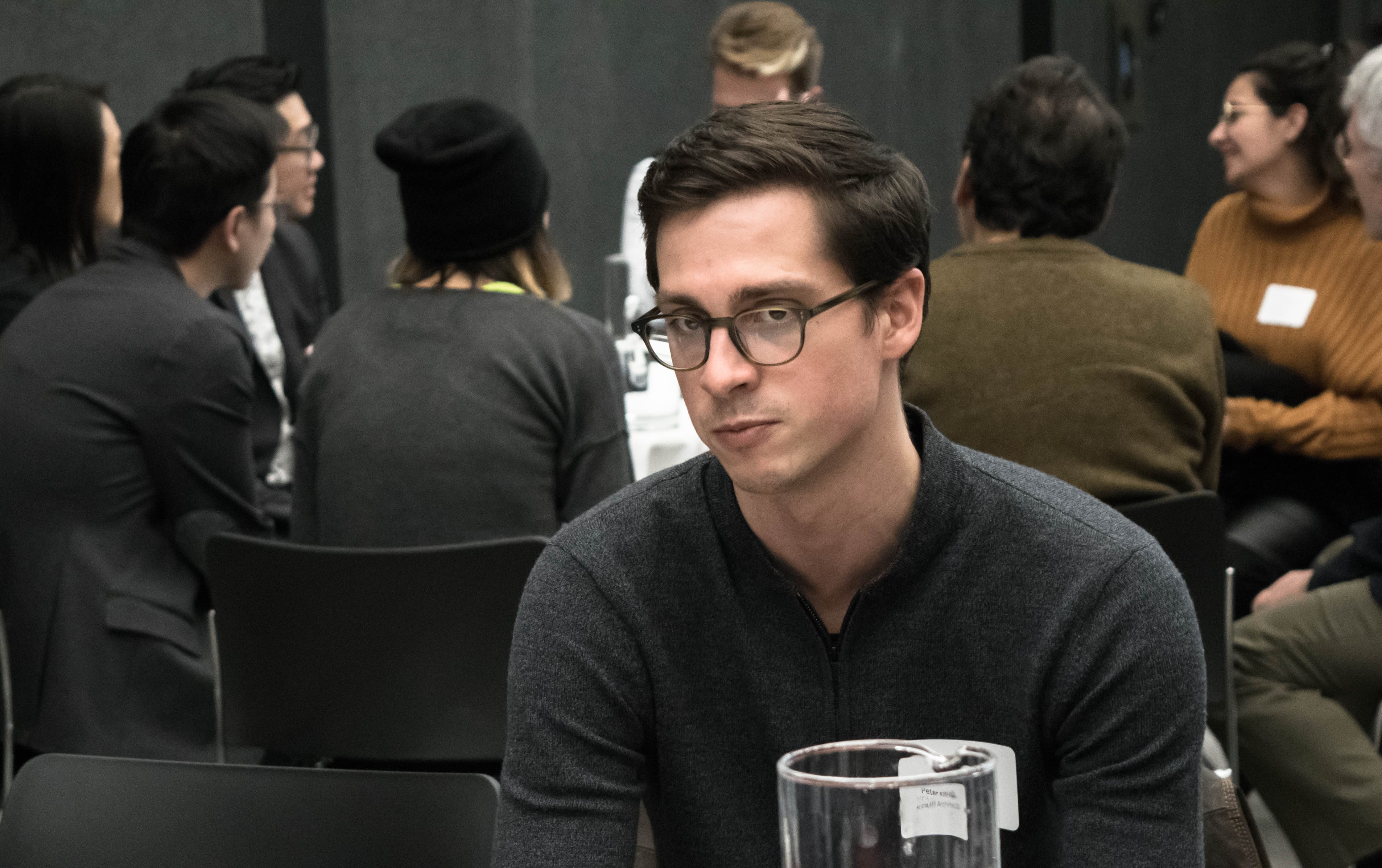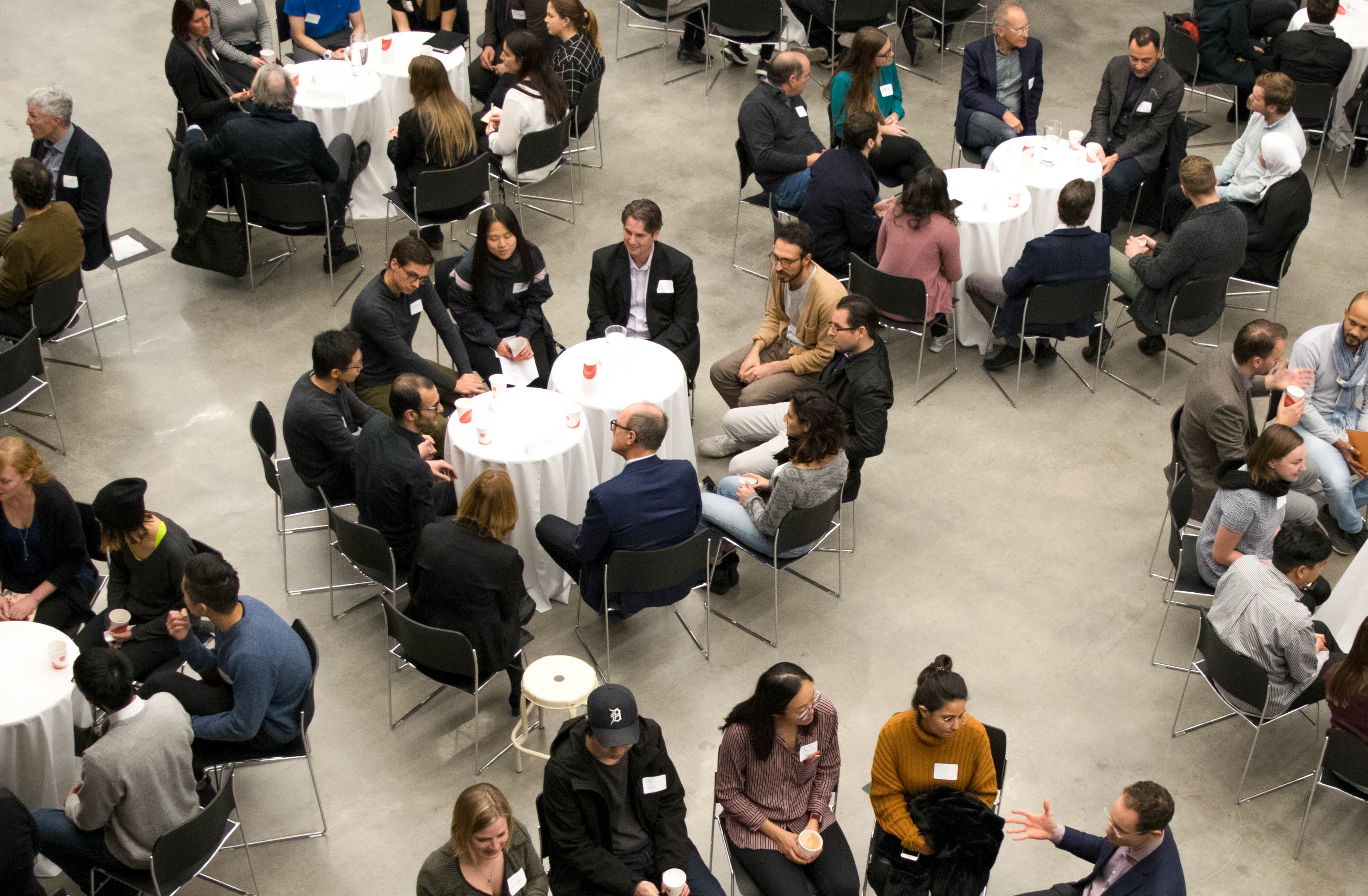
06.01.19 - Q&A: Peter Kitchen (MArch 2016) on preparing for life after graduation
Last year, Peter Kitchen (MArch 2016) took part in the Daniels Faculty’s Student-Professionals Networking event for the first time as a professional. Now an Intern Architect with KPMB, Kitchen looked forward to providing guidance to graduate students — after all, it wasn’t that long ago that he was a student himself. Undergraduate student Tina Siassi (BA, Architectural Studies, 2019) spoke to Kitchen about his emerging career, tips for current students, and how the Daniels Faculty prepared him for life after school.
What was the best piece of advice that you received when attending the networking event as a student?
It was a number of years ago, but I recall learning about the importance of making connections in the industry and building relationships with architects at other firms and participating in your community and network.
Did you work on making connections before graduation? Did they prove fruitful?
I did an internship the summer before graduating, which lead to a full-time position.
Attending the student-professionals networking event as a professional, what was the most challenging question to answer?
The most challenging question was: “how can a student or recent grad differentiate themselves from the competition?” It is a competitive field once you graduate and begin searching for employment. There is no single answer; however, it depends on what your skills are and I would suggest curating your work to your strengths; offices will notice.

How did the Daniels Faculty’s Master of Architecture program prepare you for life after graduation?
Daniels has a large cross-section of faculty that come from a wide variety of creative backgrounds, so as a student, if you are able to foster those relationships and use them as a resource it can help you understand which direction you want to go in — whether it is something academic and research-based versus working on larger public realm projects or private residential homes. I think that is an advantage U of T offers.
What is the one piece of advice that you would give to current students who are looking for jobs?
Research the offices you are interested in working with to understand what they have to offer in terms of your growth as a designer and pursue opportunities that align with your actual interests and skills.
What events or extracurricular activities do you think would be valuable for current students to get involved in to better their chances of success after school?
There are so many things you can do! There are certainly the lectures, both the Daniels lectures and external ones, including those organized by the Toronto Society of Architects where you can easily become a member. Being aware of what is going on in the city is important — new projects and construction are on every block. Look into the planning background of the buildings you see going up and how it contributes to the architecture around us. You can also attend public hearings and reviews for more exposure to some of these designs. All of these activities will expose you to design professionals within the industry and you can make meaningful connections this way.

